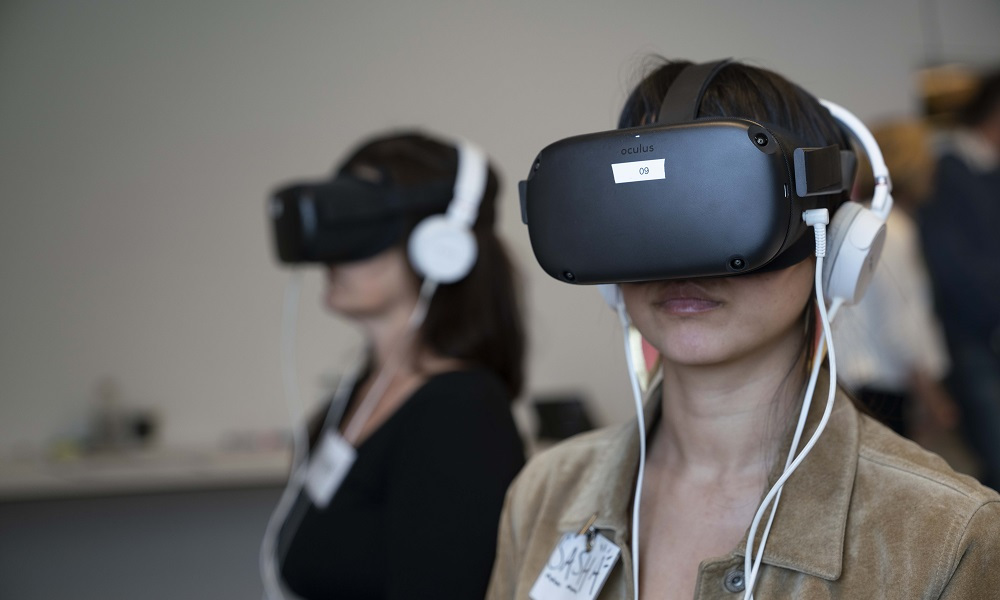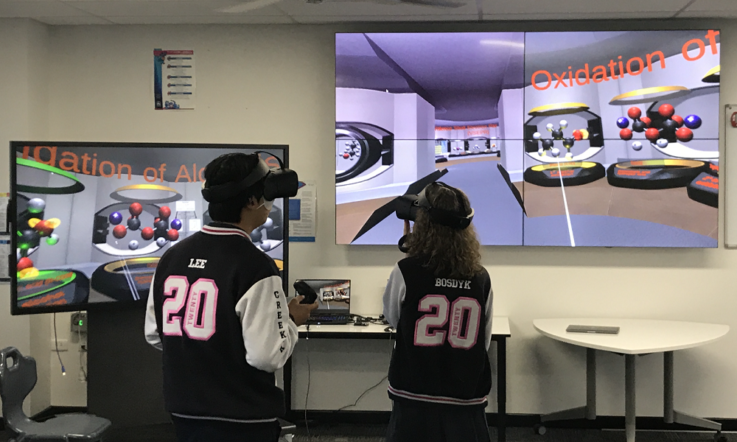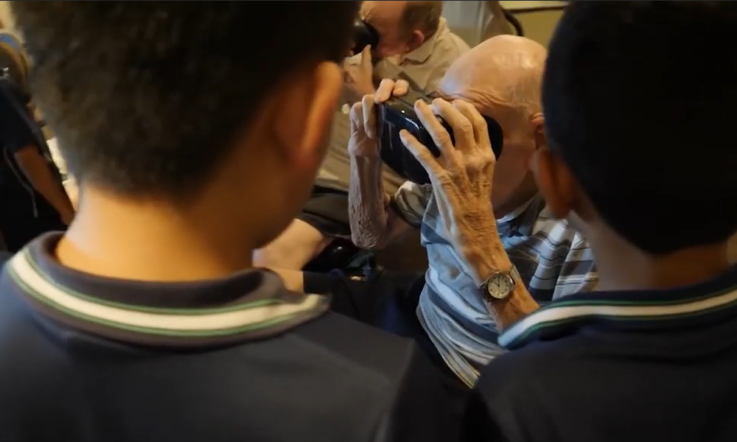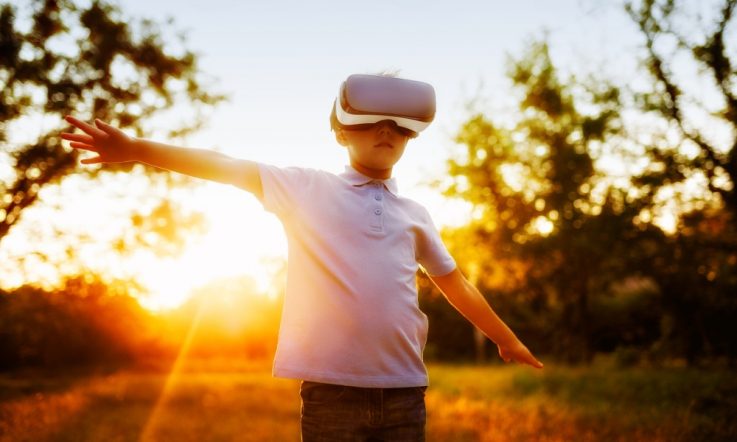Students in Years 8-10 at Maitland Grossmann High School in Maitland, New South Wales, will be participating in a trial of a social and emotional learning course, which includes the use of virtual reality (VR).
The WISE course, developed by immersive learning company Curiious, aims to improve the emotional fitness of students by teaching them to cope with stress and anxiety, and equipping them with the appropriate tools to do so.
‘[The name for the course] sat really well with the idea that we're looking to become more wise in our understanding of who we are as a human being, as well as our own emotions and emotional needs,' James McDiarmid, education advisor at Curiious, tells Teacher.
McDiarmid, along with a clinical psychologist, were instrumental in developing the WISE course and wanted to create a program that would engage the benefits of VR, but not completely rely on screen time. Ultimately, they hope students walk away with a firmer understanding of who they are as human beings, as well as their own emotions and emotional needs.
The eight week trial is now underway and will consist of nine lessons which run for 45 minutes to an hour, comprising of 15 minutes spent using VR, in line with industry recommendations for health and safety.
Teacher and student interaction with virtual reality
As students work through the VR experiences in the course, classroom teachers are able to monitor and control each student's headset. Five educators at Maitland Grossmann High School were selected to participate in this trial, and have undertaken extensive training in using VR.
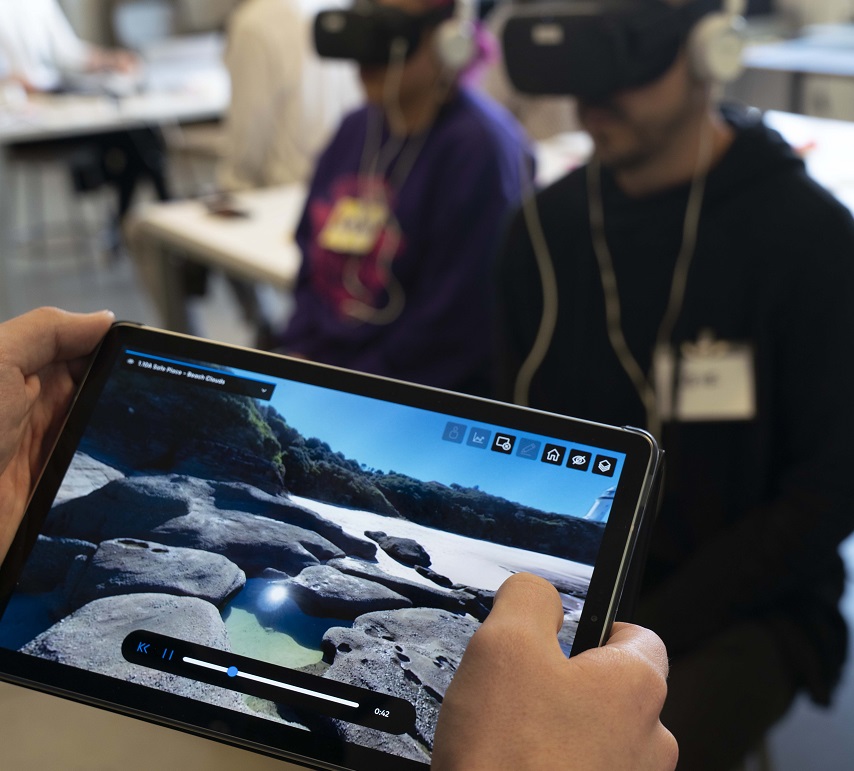
A teacher using Curiious software on a tablet to monitor progress in the VR experiences. Image supplied.
‘Whilst the WISE program is still designed to be a [personal] experience, it still is operational in a classroom environment, meaning that the teacher has full visibility, as well as full control of that experience…' McDiarmid explains.
‘The teacher can see all of what's going on in a class set of headsets at any time, with thumbnails, with progress bars, if a headset was to be malfunctioned, or someone was to remove their headset, or if someone wasn't up to speed with where everyone else was – all of those things are flagged…' he says. Likewise the teacher can pause and rewind the experience, and there is also the capability to send announcements to all headsets simultaneously.
An example of one of these experiences, McDiarmid shares, is about teaching students that thoughts are like trains that speed past. The VR experience involves being teleported into a white cloud up in the sky, where trains will fly past you.
‘It's trying to replicate that our thoughts are like trains and they fly past us. How do we slow those thoughts down? How do we stop those thoughts and take stock of whether it's a positive or negative thought?'
Achieving high student engagement with VR
Relieving Principal at Maitland Grossmann High School, Josh Gane, says the WISE course complements existing programs at the school, and is already being well received by students.
‘It matches well with a program we're running called Positive Education, which is a program that is built into our curriculum, and our students have fortnightly lessons with mentor teachers,' Gane tells Teacher.
The WISE course aims to equip students with tangible skills and emotional fitness which they can practise on a daily basis, or implement in a situation where they are challenged, he explains.
Controlling impulsivity, risk taking behaviours and emotional regulation are all a focus of the trial, he adds, which he says are applicable to a vast majority of the school's students as they move through the different stages of adolescence.
‘It's about the VR bringing on that level of participation that students otherwise don't have,' Gane shares, ‘and allowing that increase in agency in the activities that they're undertaking.'
Mark Bayada is the Head of Industrial Arts at Maitland Grossmann High School and was involved in getting the school to participate in the trial. He says students have completed the first WISE lesson in the course and were completely immersed in it.
‘They could be there all day if they wanted to, but … the way they learn through it is just completely different and that's the advantage of the VR headset, immersing them in that environment and letting them just explore their feelings and their wellbeing. It's just amazing,' he says.
The WISE course addresses controlling impulsivity, risk taking behaviours and emotional regulation. Josh Gane says these topics are applicable to a vast majority of the school’s students as they move through the different stages of adolescence.
Think about the initiatives your school community has in place to address these topics with students. What has been the student feedback on these programs? What is already being done well? Which aspects have room for improvement?
